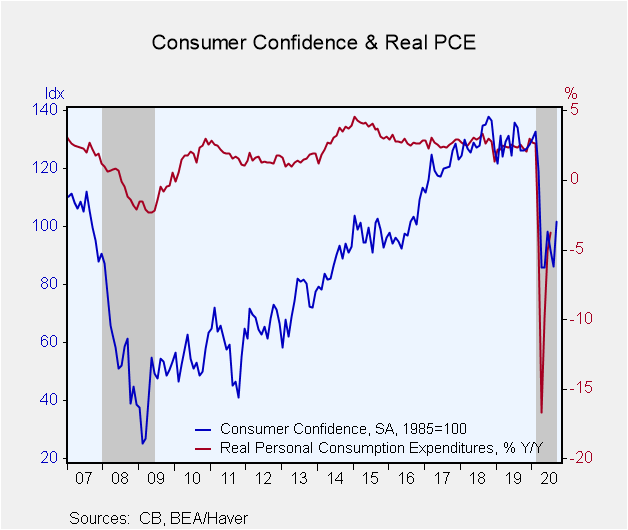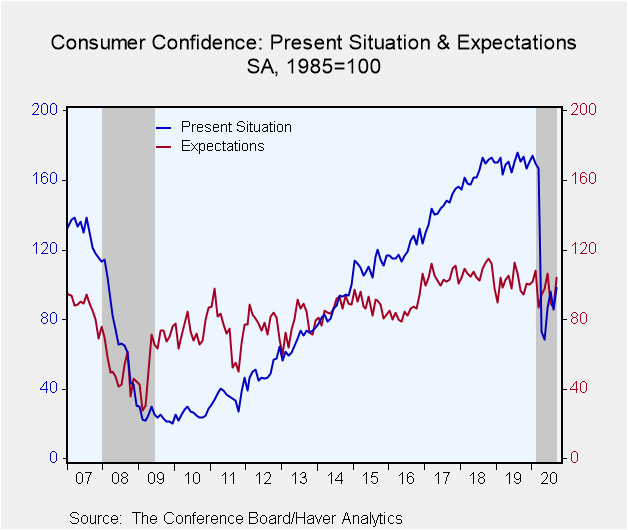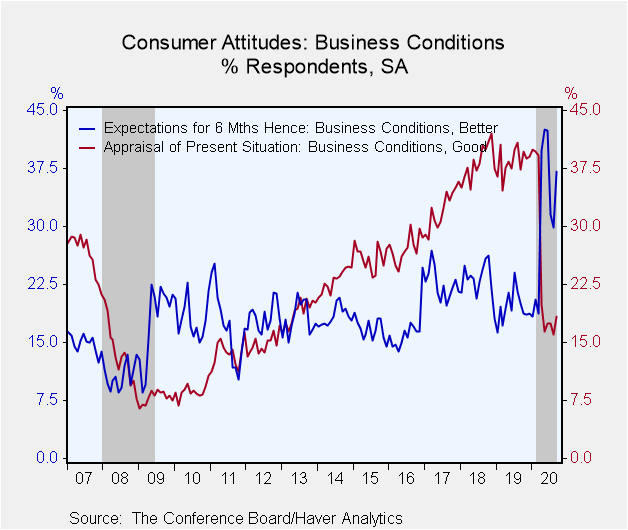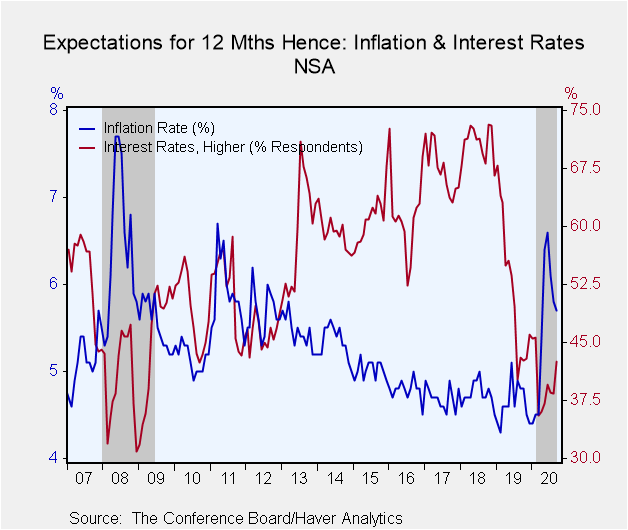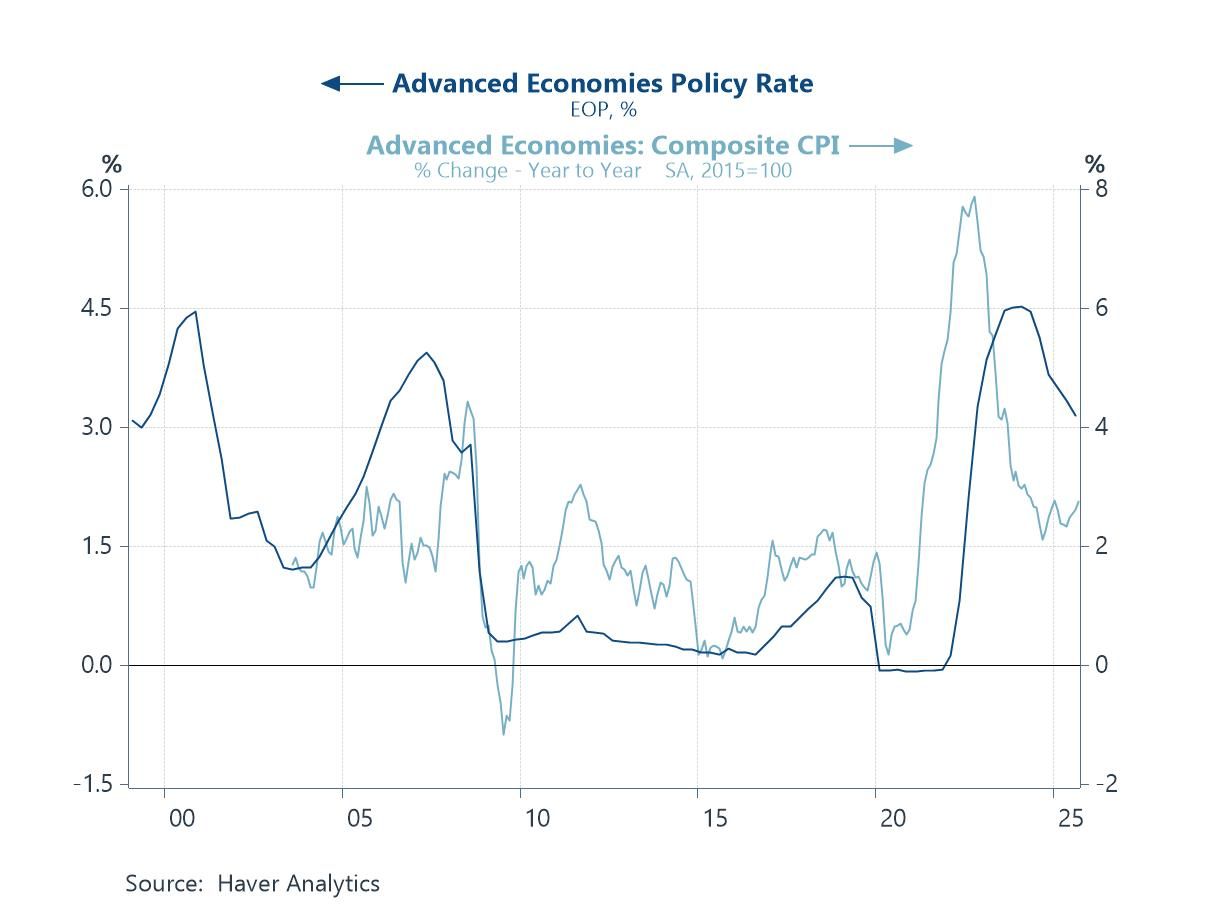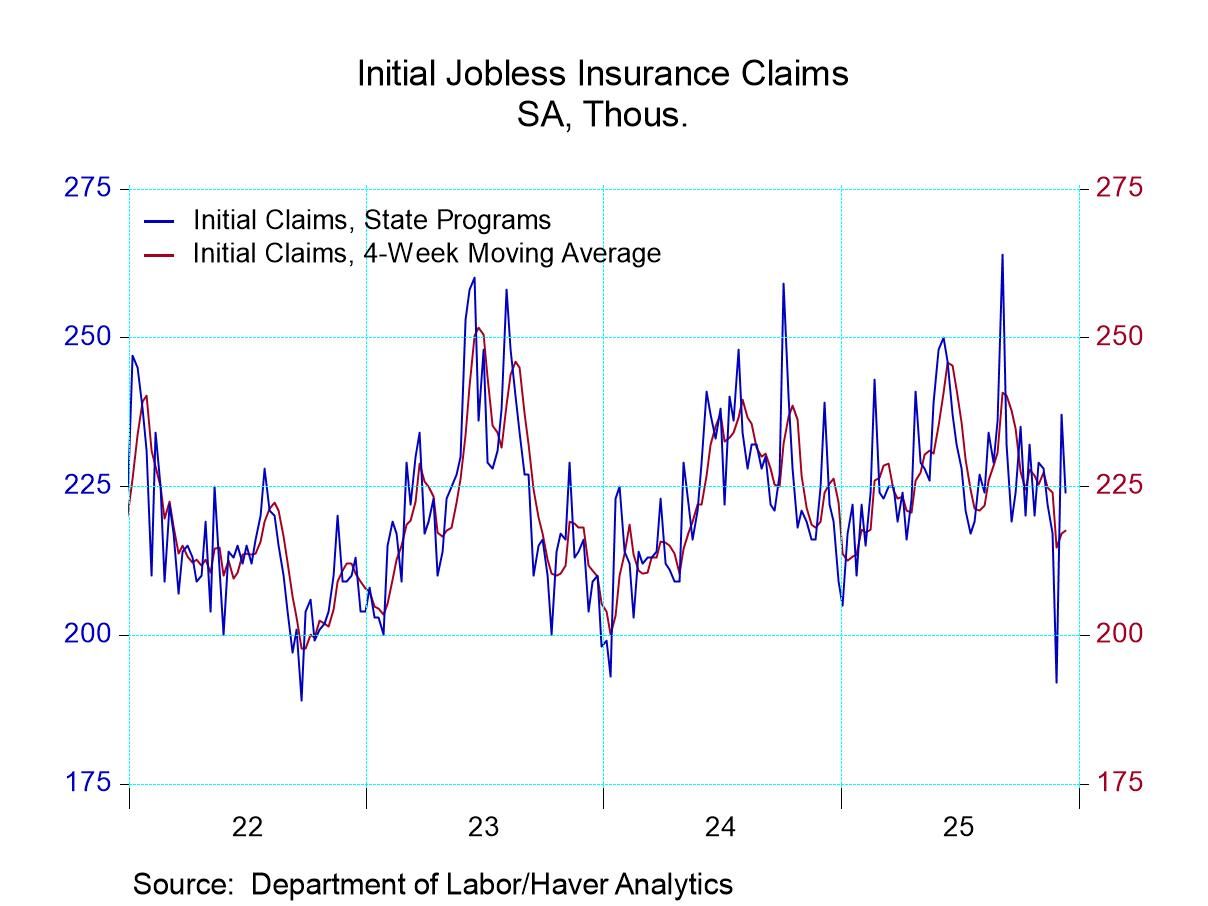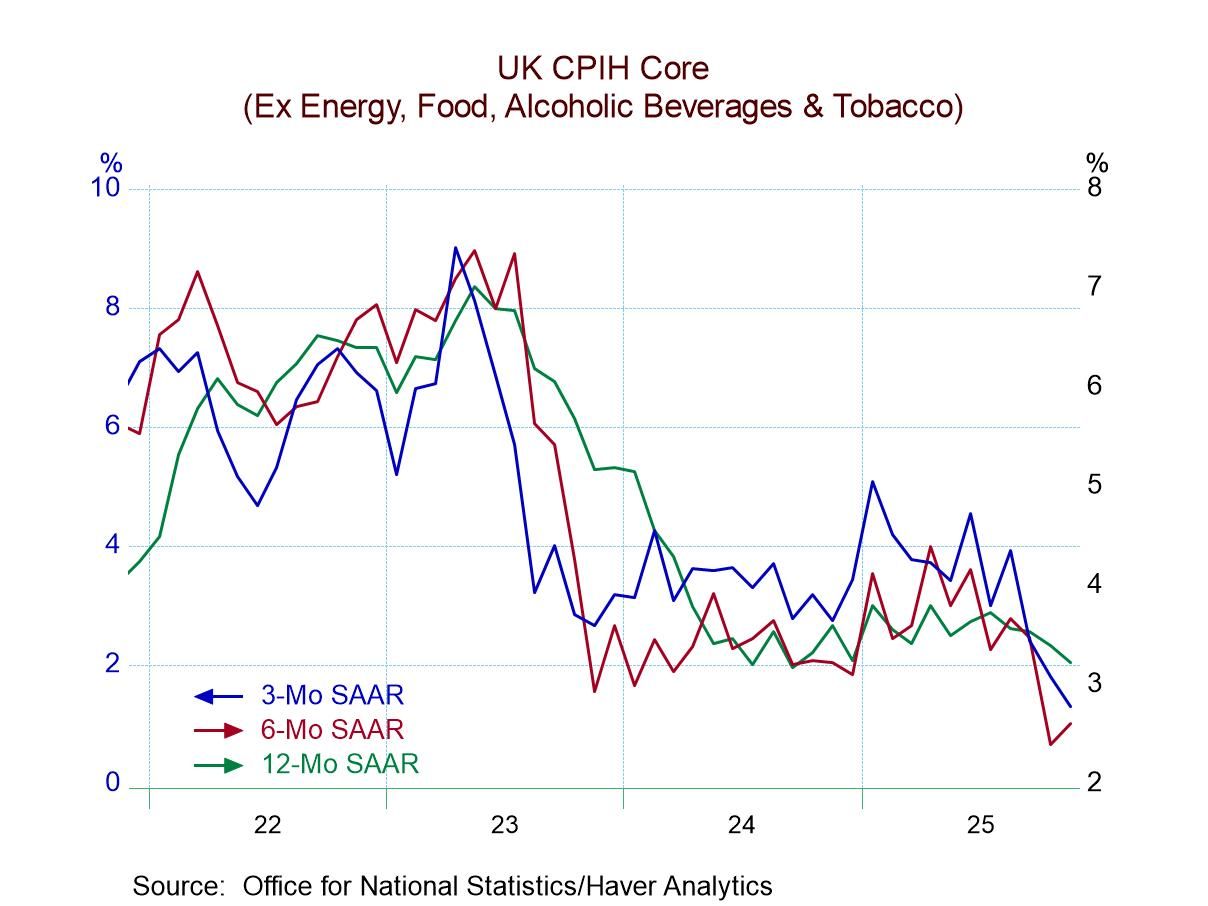 Global| Sep 29 2020
Global| Sep 29 2020U.S. Consumer Confidence Rebounds Meaningfully in September
by:Tom Moeller
|in:Economy in Brief
Summary
• Improves to highest level in six months. • Appraisal of both current conditions and expectations firm. • Confidence rises in all age brackets. The Conference Board's monthly consumer confidence survey showed improvement this month [...]
• Improves to highest level in six months.
• Appraisal of both current conditions and expectations firm.
• Confidence rises in all age brackets.
The Conference Board's monthly consumer confidence survey showed improvement this month following two months of decline. The September index was 101.8 (1985=100), an 18.0% increase from August which was raised to 86.3 from 84.8. Expectations had been for a lesser increase to 90.1 in the Action Economics Forecast Survey. Over the last 25 years, there has been a 58% correlation between the level of confidence and the y/y change in real consumer spending.
The index of expected conditions in six months rose 20.1% (7.4% y/y) in September as it mostly recouped declines during the prior two months. An increased 37.1% respondents expected improvement in business conditions in the next six months while a higher 33.1% expected a rise in employment. The percentages looking for deterioration declined. Income was expected to improve by a raised 17.5% of respondents, while a lessened 12.6% expected a decline.
The index of the present situation increased 14.8% in September to the highest level since March. The increase reflected an improved 18.3% of respondents who felt that business conditions were good and a greatly lessened 37.4% who felt they were bad. The labor market was perceived as slightly better with the "labor market differential" (jobs plentiful minus jobs hard-to-get) improving slightly.
Expectations for the inflation rate in twelve months eased in September to 5.7%, and that was down from a 6.6% high in June. An increased 42.5% felt that interest rates would increase during the next six months while a lessened 21.3% felt they would decline. Plans to buy a house, new or existing, increased in September to 6.4% of respondents, although this was down from 7.7% in July. A slightly higher 11.8% of respondents planned to buy a car and an increased 49.0% planned to buy a major appliance within six months, the most since February.
By age group, the index of confidence among those under 35 improved m/m for the first time in three months (-38.8% y/y. Confidence of those aged 36-54 surged to the highest level in six months (-22.0% y/y). And those over age 55, confidence also rose to the highest level in six months (-8.1 y/y).
The Consumer Confidence data are available in Haver's CBDB database. The total indexes appear in USECON, and expectations are in AS1REPNA.
| Conference Board (SA, % Chg.) | Sep | Aug | Jul | Sep Y/Y | 2019 | 2018 | 2017 |
|---|---|---|---|---|---|---|---|
| Consumer Confidence Index | 18.0 | -5.9 | -6.7 | -19.4 | -1.4 | 8.0 | 20.7 |
| Present Situation | 14.8 | -10.5 | 10.6 | -42.3 | 3.1 | 13.8 | 20.3 |
| Expectations | 20.1 | -2.6 | -16.2 | 7.4 | -6.0 | 2.6 | 21.1 |
| Consumer Confidence By Age Group | |||||||
| Under 35 Years | 4.7 | -9.4 | -16.0 | -38.8 | 0.3 | 2.7 | 6.4 |
| Aged 35-54 Years | 19.2 | -5.7 | -6.5 | -22.0 | -1.1 | 7.0 | 16.4 |
| Over 55 Years | 21.7 | -5.4 | -3.7 | -8.1 | -1.9 | 11.8 | 33 |
Tom Moeller
AuthorMore in Author Profile »Prior to joining Haver Analytics in 2000, Mr. Moeller worked as the Economist at Chancellor Capital Management from 1985 to 1999. There, he developed comprehensive economic forecasts and interpreted economic data for equity and fixed income portfolio managers. Also at Chancellor, Mr. Moeller worked as an equity analyst and was responsible for researching and rating companies in the economically sensitive automobile and housing industries for investment in Chancellor’s equity portfolio. Prior to joining Chancellor, Mr. Moeller was an Economist at Citibank from 1979 to 1984. He also analyzed pricing behavior in the metals industry for the Council on Wage and Price Stability in Washington, D.C. In 1999, Mr. Moeller received the award for most accurate forecast from the Forecasters' Club of New York. From 1990 to 1992 he was President of the New York Association for Business Economists. Mr. Moeller earned an M.B.A. in Finance from Fordham University, where he graduated in 1987. He holds a Bachelor of Arts in Economics from George Washington University.


